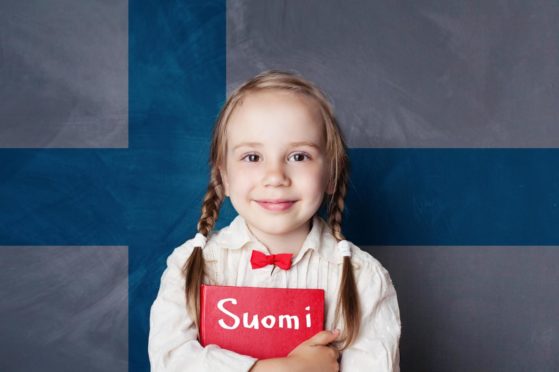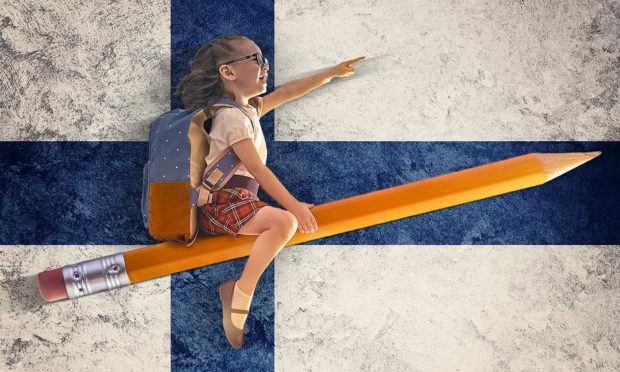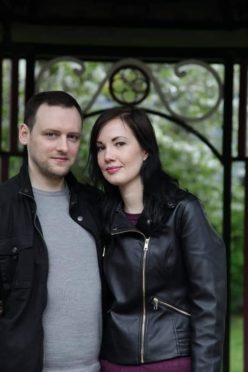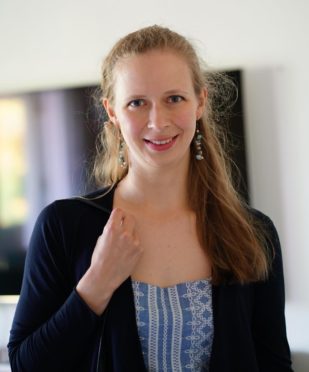Why does the Finnish education system, in a country with an identical population to Scotland, consistently produce higher achieving school pupils?
Teachers need more autonomy, less class planning, and more respect for their profession.
And pupils should start school later, get more breaks, and have less focus on assessment.
Those are some of the ideas the Press & Journal heard after speaking to Finnish parents and educationalists living in north and north-east Scotland.
We also spoke to Finland’s minister for education, Li Andersson, to see what lessons can be learned.
Education systems across the world are judged by Pisa (Programme for International Student Assessment) tests, with results released every three years.
Pisa measures 15-year-olds’ ability to use their reading, maths and science knowledge and skills to meet real-life challenges.
Pupils in 79 countries and regions take the tests.
In the latest Pisa rankings (2018), Finland came second among European countries for reading and science.
In the last four released results stretching back to 2009, Finland has never come lower than joint sixth worldwide in these areas.
Finland consistently outperforming Scotland
While Finland’s rankings have slipped slightly – with the country now ranked eighth among European countries in maths – the Nordic nation continues to outperform Scotland across all three areas.
Scotland recorded its worst-ever performance in maths and science in the most recent Pisa tests, ranked 25th and 24th among OECD nations.
Reading offered a rosier picture, with Scotland ranked above Wales and Northern Ireland, though slightly below England.
It achieved a mean score of 504 for reading (Finland = 520); 489 for maths (Finland = 507); and 490 for science (Finland = 522).
Finland and Scotland both have populations of 5.5 million, so it’s worth asking the question: What can we learn from the Finns?
It’s perhaps appropriate to begin at the very beginning, with the age at which children start school.
In Finland, compulsory schooling starts the year a child turns seven.
Ulla-Riikka Kuisma works as a music teacher for Big Noise Torry at Tullos Primary School in Aberdeen, and as a visiting instructor at Robert Gordon’s College.
She said: “For me, children starting school at four or five has been one of the most surprising things about Scotland.”
Kinloss resident Kaisa Oikkonen has lived in Scotland for almost 20 years, and has a 16-year-old daughter who begins S5 after the summer.
She said: “It makes sense to start later.
“You’re more ready to learn around seven.”
Shorter days, more breaks
The issue of the school starting age led swiftly to the importance of breaks.
In Finland, the school day is three to four hours long at primary school level, and anything between three and seven hours long at secondary level.
Each lesson lasts 45 minutes, followed by a 15-minute break.
Merita Beaton lives in Dingwall with husband James and 15-year-old stepdaughter.
She was a pre-school teacher in Helsinki before moving to Scotland in 2017.
“Finns put a lot of emphasis on the importance of rest and breaks,” said Merita.
“The brain is like a muscle. First you use it and train it, but the actual growth happens while you rest.
“We did a lot of what we called ‘brain breaks’.
“These were easy and quick relaxation exercises that would give the children a two-minute break in the middle of a class to rest and refocus.”
Kaisa Oikkonen agreed: “You’re efficient when you’re working, and then you have more free time.
“You have more time to relax, and let your brain relax.
“And then you’re more ready to take in new information.”
Ulla-Riikka said: “The school day in Finland is not as long and there are many more breaks.”
Some felt teaching as a profession was afforded more respect in Finland than in Scotland.
They also felt teachers are trusted more in Finland, and cited the far lesser role inspectors have in schools.
‘If you’re smart, you don’t go into teaching’
Oona Piipponen did her teacher training in Scotland, which included a probationary year teaching in Wick.
She has conducted doctoral research into primary education, and is now back in Finland working as a primary teacher.
She said: “When I was studying in Scotland, one of my Scottish peers said: ‘Oona, you’re so smart, why do you want to be a teacher?’
“One of the narratives that seems to be ongoing in Scotland is that if you’re smart you don’t go into teaching, you go into medicine or law or some profession like that.
“I hope that attitude can change over time.”
‘We trust our teachers’
Minister for education Li Andersson said: “Teaching has, historically, always been a very highly regarded profession in Finnish society.
“This higher appreciation for the profession has enabled us to have an educational policy which is quite heavily based on autonomy for teachers and autonomy for schools.
“We trust our teachers, we trust their professionalism in teaching.
“This means that we have less standardised testing than in many other countries.
“We give teachers a lot of freedom when it comes to teaching methods, and when it comes to assessment of learning.
“That’s something that teachers appreciate.
“The teaching profession in Finland is also an attractive one.
“Not all students who apply to become teachers are accepted.
“This is quite uncommon, at least on a European level, if you look at other countries.
“So investing in teachers and having an attractive profession is very important.
“Trusting teachers is an important way to grow the attractiveness of the profession.
“When the profession is attractive, then you will have more motivated, gifted young people applying to study to become teachers.
“This has implications for the whole education system.”
Elena Koponen-Baikie has lived in Scotland for 30 years, first in Aberdeen and now Wick.
Her three children, aged 14 to 25, all did a term of schooling in Finland.
She said: “There’s a lot of respect for the teaching profession in Finland.
“Teaching, whether primary, nursery or university, is regarded highly.
“It’s a long training to get there.”
Less school inspections
Oona Piipponen said there isn’t the same emphasis on school inspections in Finland.
Instead teachers are trusted to know what is best for their school and how best to implement it.
She said: “One really good thing about the Finnish system is that education is not actually under government control per se.
“The education system is developed by teachers on the inside, and you have the independent Finnish National Agency for Education which leads curriculum development.
“And these people are usually teachers, or have been teachers.
“I think Scotland’s reaching a stage where it could probably survive without inspectors and just self-evaluate.
“That could be something from Finland that Scotland might want to look at in the future.”
Letting teachers teach, rather than preparing kids to pass exams, was another common theme in Finnish education.
Oona added: “The assessment system in secondary schools appears to be quite complex and involves a lot of administrative work for teachers.
“This is time away from teachers’ time to plan and evaluate learning.
“Preparing high quality feedback to students also requires time.
“Giving feedback on learning as you go along is one of the most effective ways to improve attainment.”

Schools and local authorities have more freedom
Elena Koponen-Baikie said: “Although there is a national curriculum, the teachers, schools and local education authorities have a lot more freedom in what they implement and how they implement it.
“Teachers I know in Scotland very much have to teach for the exams.
“It’s very much, ‘this is in the curriculum and not that’.
“I feel that in the Finnish system the teachers have a lot more freedom just to teach the kids as much as they can.”
Ms Andersson said: “The problem with standardised assessment or testing being done all the time is that it affects the whole teaching agenda.
“You start to learn for assessment, there’s not so much emphasis on learning itself and the acquiring of a broad skill set, and also individual types of learning methods.
“I think children learn better when we emphasise learning itself, rather than just knowing certain things for certain exams or tests.
“There’s been a lot of focus and discussion now in Finland on the importance of learning skills.
“Not just what we learn in terms of information or maths and so on.
“But that we have the skills to learn, because that’s something we’ll need throughout our lives and our careers.
“That is the skillset that is becoming more and more important as the labour market changes.
“More and more people need to have a continuous learning mindset, because we might not face a labour market where we can work in the same professions or with the same tasks throughout our working lives.”
Reducing teacher workload
Much emphasis was placed on reducing teacher workload.
Class planning, the bane of many teachers’ lives in Scotland, is less of an issue in Finland.
This comes partly from the fact that greater importance is placed on teaching from textbooks, which are usually written by practising teachers.
Oona Piipponen said: “It really takes the strain off the teachers, because you don’t have to spend your nights preparing material.
“Teaching is a hard job and you need to rest.
“So there’s a big focus on teacher welfare as well.
“When I was teaching my first year in Scotland, it was like survival mode.
“I had to block off Saturday to clean my flat and do my shopping, because I didn’t have time to do it any other day.
“Going from that to teaching in Finland, I have time to focus on my work and do it well.
“I don’t have to come to school sleep-deprived and burnt out.”
‘Don’t panic about Pisa’
While outlining possible improvements based on Finnish education, Oona warned not to read too much into Pisa results.
She cited the fact that in Finland only 10% of children live below the poverty line – compared to Scotland’s 25% – as a partial explanation of the attainment gap between the two countries.
She added: “For Scotland, maybe the next Pisa results are the ones where you start to see the kids who have gone through all of Curriculum for Excellence.
“I think you have to be wary about how much you read into Pisa results and how much you panic when they come out.”
Ms Andersson said: “A hundred years ago, Finland was a very rural and one of the poorest countries in Europe.
“It was industrialised later than most other countries in Europe.
“So the change and progress has happened at a very quick pace.
“And I think one of the key factors for this progress is that education was seen as the main way of social mobility.
“There was quite a strong push within working class families to push their children to educate themselves as long as possible.
“The Finnish ‘school for everybody’ was founded in the early 1970s.
“There was a very big national education reform.
“They decided that we want to have one system for all.
“It didn’t matter if you came from a working class background or a better off background.
“All children from all families would go to the same schools together.”

Education key to Finland’s ‘tremendous leap’
The impact of the successful Finnish education system on wider society was something Ulla-Riikka recognised.
“Education is key,” she said.
“It’s why Finland has made such a tremendous leap in the last 100 years.
“The whole country was in horrible poverty after the Second World War.
“Most of the country was farming, in the 1950s when my parents were children.
“The politicians realized we couldn’t become rich through farming, because we’re so far north and nothing grows.
“They saw that the only way we could succeed was to invest in people, and in people’s brains.
“Now we have high engineering knowledge, and have produced a lot of innovations.
“Things like Nokia and Angry Birds came from Finland.
“And we have researchers who are respected internationally, and are asked for their opinions from people all over the world.”
More from the Schools & Family team
Find a magical way to spend the holidays with our clickable map
North-east teacher reprimanded after showing pupils exam questions
Angus Peter Campbell: The illusion of choice at school may keep us from discovering our true talents




